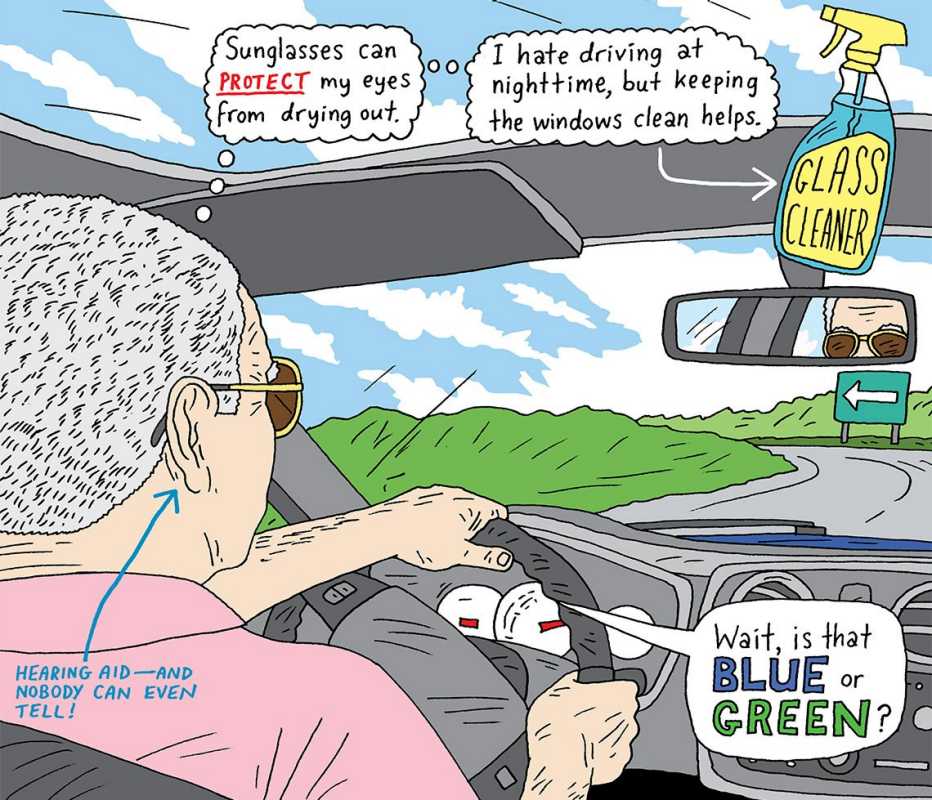AARP Hearing Center


The good news in your 70s: There are plenty of new weapons to battle sight and hearing loss.
The reality check in your 70s: Saving your senses is one of the keys to protecting your brain.
- You look great in sunglasses. Your natural tears contain less oil now, so they don’t lubricate the surface of your peepers as effectively. Diuretics, antihistamines, antidepressants and eye drops for glaucoma can dry out your eyes, too. Think twice about prescription dry-eye drops; they work for only a limited number of people, and even then it can take months before you see results. Preservative-free artificial tears, a humidifier and sunglasses when you’re outdoors are better bets. If you have a more severe case, your ophthalmologist may place tiny plugs in the tear ducts at the inner corner of your eyes so your tears stay longer.
- But you’re nervous about driving at night. The tiny muscles that work the pupils are less peppy in your later years; the pupils don’t open as wide to let in light and take longer to shrink when you walk outside on a sunny day or when an oncoming car flashes its high beams at night. Spotting subtle contrasts is tougher as well, making it harder to see signs and road hazards at night and to judge the speed of other vehicles. No wonder one recent study showed that 20 percent of people stopped driving at night by their late 60s. To make night driving easier, keep your headlights, mirrors and windows clean. Infrared night vision technology is available in some luxury cars, including Cadillac and Mercedes models, and will eventually be a feature in less pricey vehicles.
- You may be looking at cataract surgery. It turns out that the median age for this procedure in the U.S. is 67 ½, although people who live in more northern climates are more likely to require this surgery later in life. Don’t accept diminished eyesight. In a recent University of California, Los Angeles, study of 74,044 women 65 and older with cataracts, those who had cataract surgery lived longer and had fewer accidents, infections, cancers and other problems.
- Hearing aids might be on the table too. Thanks to decades of noise exposure, more than two-thirds of adults in their 70s have hearing loss in one or both ears. And more than 1 in 3 people in their 70s have trouble hearing sounds below a quiet whisper; others may not notice the hum of the refrigerator or even the roar of a vacuum cleaner. Don’t be afraid of having to wear a clunky plastic earpiece: Today’s hearing aids are barely noticeable. What’s more, a recent survey found that 78.6 percent of people with hearing aids less than four years old were happy with them. If these devices no longer work for you, ask your doctor about cochlear implants, which can improve hearing.

































































More on Health
Your Muscles and Bones at 70+
What to expect for your joints, height and structure